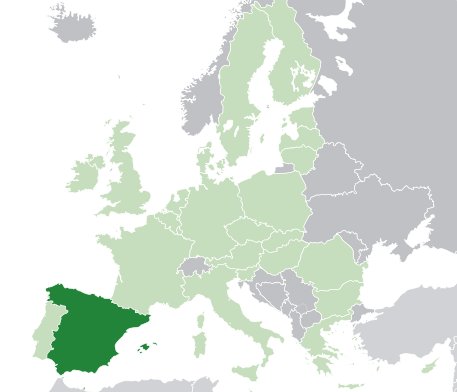04.11.12
Posted in GNU/Linux, Google, Patents at 12:21 pm by Dr. Roy Schestowitz

Summary: A quick look at patents that threaten Linux in servers and in mobile
SOMETIMES we write Amazon’s patents because they have become a real problem (and Amazon pays Microsoft for Linux).
Amazon’s S3 patent is a patent on distributed storage system with web services client interface and it can be found here, potentially to affect many Linux-based services. Does anyone find that benign? Oracle is meanwhile threatening mobile Linux, packaged in the form of Android. Groklaw writes about the jury:
First, it’s going to require an incredibly large jury pool. We know that because Judge Alsup previously told the parties to the dispute to limit their entourages during the jury selection process as the jury pool would require half the seating in the courtroom. From this pool the parties and the Court will select between six and 12 individuals (civil trials do not require a jury of 12).
Pamela Jones has some other details from this trial, including transcripts. Remember that Amazon can ‘pull an Oracle’ one day. Just because Amazon uses GNU/Linux (so does Oracle) doesn’t mean it’s harmless. Many former Microsoft managers work in Amazon now. █
Permalink
 Send this to a friend
Send this to a friend
Posted in Deception, Microsoft, Patents at 12:11 pm by Dr. Roy Schestowitz
From a football club in Spain to a convicted monopolist from Redmond

Summary: How Microsoft uses some certain Germans to serve the Microsoft propaganda machine
THE Microsoft version of GNU/Linux is developed in Germany now (SUSE, not Novell). It claims to have just turned 20, but we have already explained why that’s technically not the case. It’s a bit of a deception. Generally speaking, SUSE’s purpose is now to help Microsoft tax GNU/Linux, especially in servers; that’s what Microsoft keeps SUSE going for. It deceives the public and traps ignorant managers.
There is another thing going on in Germany and it acts as a Microsoft proxy. Some journalists are citing a Microsoft lobbyist in articles about Microsoft (reports on patents quote a Microsoft patents lobbyist without disclosure). They don’t seem to understand that Florian Müller is paid directly by Microsoft to produce spin. Right now that AOL (filled with former Microsoft managers [1, 2, 3, 4]) gives its patents to Microsoft, IDG quotes the lobbyist:
Marking the latest escalation in the technology industry’s intellectual-property arms race, Microsoft is paying AOL a shade over $1 billion for 800 patents, the cream of which AOL CEO Tim Armstrong has described as “beachfront property in East Hampton.”
And the corporate press also quotes the Microsoft lobbyist, calling him “blogger”. Here is CNN:
AOL walks away with some much-needed cash for patents it was no longer using. Microsoft gets to take home some of the first social networking patents ever granted, and Facebook — a Microsoft partner — is insulated from the legal attacks those patents could have aided had they ended up in enemy hands.
The system enables passing patents around like weapons, to be used for litigation and deterrence. It is indicative of an inherently broken system. Fernando Cassia says:
How many FOSS/Linux projs will be at risk w Microsoft acquiring t entire AOL patent portfolio? (remember AOL incl Netscape)
I used to work for them, too (back while I was doing my Ph.D.). Soon I might be moving to London, but the days of AOL/Netscape are remembered fondly, going back to times when the company was not just a Microsoft puppet of sorts. It still had a Web browser back then. The news about AOL is not shocking because we wrote about AOL’s Microsoft leanings before. It seemed like entryism, too. █
Permalink
 Send this to a friend
Send this to a friend
Posted in Finance, Microsoft at 11:52 am by Dr. Roy Schestowitz

Summary: A recollection of the SEC’s correspondence with Microsoft regarding lack of clarity
THE MONOPOLIST from Redmond is not properly disclosing its money management schemes and practices of tax dodging. Some time ago the SEC contacted Microsoft. As Pogson sarcastically puts it:
That should inspire confidence in shareholders. Depending on the outcome of an appeals process to prop up the bottom line is not good business. If the taxation contingency is $7billion for the audit of 2006, what could be the size of the contingency for all those other years?
We covered this at the time. The CFO left the company and was paid to keep quiet. Just what exactly is going on at Microsoft and why is it taking loans? Much of the money might be stashed abroad, but how much really? Microsoft is shrinking and living on some borrowings. █
Permalink
 Send this to a friend
Send this to a friend
Posted in FUD, GNU/Linux, OLPC at 11:44 am by Dr. Roy Schestowitz
“Fat operating systems spend most of their energy supporting their own fat.”
–Nicholas Negroponte, MIT Media Lab, rediff.com, Apr 2006

Picture from Wikipedia
Summary: Another news item that describes a seemingly successful project as a “failure”
THERE is something quite rotten at The Economist and it’s not just fallacies-filled GNU/Linux-hostile articles (we mostly ignore them so as to not feed the provocatuers).
The OLPC, which runs Fedora, has been under continuous attacks, being the trailblazer that — just like Munich — Microsoft and its comrades must mock.
In The Economist, OLPC Is being called a “failure” in Peru — under the assumption that part of the problem is that students learn faster than many of their teachers. Here is a person from Fedora addressing the article:
OLPC a “failure” in Peru
According to the Economist. Ah, but here’s the rub. From the article:
Part of the problem is that students learn faster than many of their teachers, according to Lily Miranda, who runs a computer lab at a state school in San Borja, a middle-class area of Lima. Sandro Marcone, who is in charge of educational technologies at the ministry, agrees. “If teachers are telling kids to turn on computers and copy what is being written on the blackboard, then we have invested in expensive notebooks,” he said. It certainly looks like that.
Here is another rebuttal, this one from HP.com:
So, instead of a “disappointing return,” or “not accomplish[ing] anything in particular,” IDB did actually find a measurable benefit.
Could it be that the disparity between test scores and actual measured achievement means that it’s the tests that are lacking, rather than the laptops? It certainly wouldn’t be the first time that academic testing was shown to be seriously wanting.
And is it too much to ask for The Economist’s journalists and fact-checkers to actually get as far as the sixth sentence in the report’s abstract, before writing the story? I know that many of today’s workers exhibit short attention-spans, but really!
There seems to be a reporting failure, not an OLPC failure. If they start with the premise that everything is failing, then they can collect claims that support the hypothesis and disregard the rest. █
Permalink
 Send this to a friend
Send this to a friend
Posted in Microsoft, Windows at 11:28 am by Dr. Roy Schestowitz

Summary: Another attempt by Microsoft to fake fanfare
THE MONOPOLIST from Redmond has already tried AstroTurfing to shore up sales of WP7. Here is one example we wrote about.
Having failed to gain even a respectable share, Microsoft then decided to game some numbers and now it gives little bribes. TechBytes’ host Tim writes:
“…Let’s face facts, Microsoft has gotten it’s hand into everything. Once there, they consistently become the 900lb gorilla in the room with a bad attitude that kills competition and is bad for consumers…. ”
Microsoft is gaming the ranks by offering little bribes or virtually no-cost presales — all just to create fake hype. We discussed this in the IRC channels when examples were given. Due to my connection being far worse than useless at the moment I may not be able to blog as usual (will keep everything short). █
Permalink
 Send this to a friend
Send this to a friend
04.10.12
Posted in Site News at 12:55 am by Guest Editorial Team
Hardware
Health/Nutrition
-
-
FDA is kicking the BPA-lined can further down the road in an announcement today that the Agency plans to keep studying this issue while consumers continue to be exposed. Specifically, the Agency’s response to NRDC’s petition is: “FDA has determined, as a matter of science and regulatory policy, that the best course of action at this time is to continue our review and study of emerging data on BPA.”
Security
Defence/Police/Aggression
Environment/Energy/Wildlife
-
New studies show impact of BP’s Deepwater Horizon disaster on dolphins and other marine wildlife may be far worse than feared
-
Storms continue to stir up oil which kills sea life and poisons people.
-
-
Radium, toluene, benzine and other nasties lead to abortions, birth defects and breast cancer around fracking rigs. Abusive oil company culture also promotes crime.
-
Parts of each town will remain off-limits because of higher exposure levels. Eight other towns in the same low-contamination category have not yet decided which areas should be reopened.
-
-
Obviously climate science was a mature field even then: the concepts and conclusions have not changed all that much. Hansen et al clearly indicate what was well known (all of which still stands today) and what was uncertain. … It is also a nice example of a statement based on theory that could be falsified and up to now has withstood the test.
Finance
Anti-Trust
-
The actions are documented in an archive of 14,400 emails held by former Metropolitan Police commander Ray Adams who was European chief for Operational Security between 1996 and 2002. The Financial Review is publishing thousands of the emails on its website at URL afr.com.
The emails show that Murdoch used “piracy” as a competitive weapon, helping people to break the digital handcuffs of rival’s pay TV boxes. The loss of face and revenue helped Murdoch to consolidate his media empire.
-
This Microsoft friendly news source uses gloats over this superposed “end of the browser wars” and uses the term “intellectual property” while glorifying and validating software patents.
Censorship
Civil Rights
Privacy
-
-
The procedures endorsed by the majority are forbidden by statute in at least 10 states and are at odds with the policies of federal authorities. According to a supporting brief filed by the American Bar Association, international human rights treaties also ban the procedures.
Humilliation is not just for the airport.
-
In the concert venue example, a ticket seller could inform someone if any of their Facebook friends were going to a given concert, Williams said. That could give them the chance to meet up or let the vendor persuade the consumer to buy a ticket, he said. … [PJ: This is creepy. Does you pretty teenage daughter actually know all her so-called "friends" on Facebook? ...]
-
The way they spied on what users typed into the Google Toolbar was no accident and I doubt this is either. Non free software always demands the ability to spy.
Education Watch
-
the United States is the only country where Gülen has been able to fully fund schools with taxpayer money. In all other nations, Gülen schools are what one would expect they would be: private religious schools.
-
DRM
Intellectual Monopolies
-
Nokia and Microsoft. Partners at law, so to speak. Is this another Microsoft/Nokia outsourced production? Remember when Barnes & Noble told us that it views Microsoft and Nokia’s patent campaign as an antitrust violation, a deliberate campaign to destroy Android and maintain Microsoft’s monopoly on the desktop and extend it to smartphones, with Nokia piggybacking with its patents for weapons and MOSAID being brought in to do some of the dirty work?
So when you read the scare headlines, remember this: Google is awesome at patent litigation. It tends to prevail. I told you that when Oracle first sued Google
-
-
“…the claimed product or process amounts to significantly more than a law of nature, a natural phenomenon, or an abstract idea with conventional steps specified at a high level of generality appended thereto.” Why *wouldn’t* that apply to software?
-
Things are looking up in PatentLand
-
Plainly, this was not a dispute about software patents, but the Court’s unanimous opinion will guide it and lower courts as they analyze future software patent cases.
-
Copyrights
-
The litigators are trying to get around the fact that judges aren’t happy with allowing mass lawsuits, so what they are doing is taking one internet user to court but using that lawsuit as a pretext to subpoena other defendants who had participated in the same BitTorrent swarm. … James Holderman of the Northern District of Illinois raised his eyebrow in disgust at this trick, saying that it was trying to get around the “stiffening judicial headwind.”
-
“We’re one of the worlds top 60 sites in the Internet. This brings us a responsibility to use the site to do something good. When I think about it, it’s insane that all the other top 100 sites only blast ads and self-centered stuff on their front pages. We do this for fun and for the love of culture, so we’re everything the major labels are not.”
-
See also this excllent summary
To gain access to the digital alternatives, students select the traditional books assigned in their classes, and Boundless pulls content from an array of open-education sources to knit together a text that the company claims is as good as the designated book. The company calls this mapping of printed book to open material “alignment”—a tactic the complaint said creates a finished product that violates the publishers’ copyrights.
-
-
A video site that published movies as urls is surprised that people would download those movies. They also found a judge that agrees enough to shut down a website where users share the urls, sometimes as embedded movies.
Permalink
 Send this to a friend
Send this to a friend
04.08.12
Posted in News Roundup at 10:12 am by Dr. Roy Schestowitz

Contents
-
Server
-
Kernel Space
-
Red Hat’s Matthew Garrett talked this week again about the troubles in supporting UEFI under Linux.
With Linux support for PCI Express ASPM having been corrected to address the notorious Linux kernel power regression of last year, Matthew Garrett’s latest topic and focus of work has been on UEFI for Linux.
Matthew’s commonly talking about the UEFI problems with Linux, especially when it comes to the Secure Boot functionality. Some past examples (and some reading for reference) include UEFI Secure Boot Still A Big Problem For Linux, Going Over The Good & Bad For UEFI On Linux, and Myths About Secure Boot: Security, Microsoft, Etc.
-
There’s a new Linux graphics driver for allowing mini/pico/compact/handheld USB-interfacing display projectors to work under your favorite distribution.
Earlier this week an email hit the Phoronix news inbox from Antonio Ospite, who has been working on this new driver support along with a Reto Schneider. While some of these small projectors have a VGA/HDMI interface (in which case no special Linux graphics driver is needed under Linux), a growing number of them are USB-based where only a Microsoft Windows driver is available. (If you’re not familiar with these types of mini/handheld projectors, see the Texas Instruments projector demo from X@FOSDEM.)
-
The 6th annual Linux Foundation Collaboration Summit concluding this week in San Francisco. In case you missed out on any coverage of the interesting sessions from the event, here’s a run-down of the worthwhile information that was shared and discussed, plus a few other extra tid-bits from the invite-only event.
-
-
Graphics Stack
-
Unigine Corp has announced a set of improvements to their cross-platform and visually-stunning Unigine Engine. With the Source Engine on Linux finally looking to be imminent for entering the public spotlight, new improvements to Unigine couldn’t come at a better time.
-
-
Applications
-
-
TermSaver is a pretty cool screensaver that can run from the command-line interface or terminal in Ubuntu/Linux. TermSaver isn’t supposed replace other screensavers that come with your desktop such as GnomeShell, Unity,KDE, or other Desktop Environment. And it also might not be able to carry out the actual purpose of a screesaver since it lacks a lot of pixel movements (screen animations), which otherwise helps to prevent “screen burns” on display devices
-
-
-
-
Instructionals/Technical
-
Wine
-
Games
-
Kickstarter is doing lots of good to Linux gaming as more and more developers are adding Linux support.
-
-
-
-
Desktop Environments
-
K Desktop Environment/KDE SC/Qt
-
GNOME Desktop
-
Gloobus Preview is an quick file previewer which supports images, documents (pdf, odf, ods, etc.), source files, audio (mp3, wav, ogg and more), video (avi, ogg, mkv, flv, etc.), folders, archives, fonts, plain text files and more.
Gloobus Preview was recently fixed so it now works with Ubuntu 12.04 too. Besides the Ubuntu 12.04 fix, the latest Gloobus Preview from BZR comes with GTK3 support, support for password-protected documents, a rewritten documents plugin, WebM support, fixed ttf, pdf and video plugins and other fixes.
-
-
I had tried out all these distributions again last week (during spring break) and this week, but I didn’t think that each of them warranted their own posts (and this is also why there were no posts last week), so I have decided to combine them all into a short summary of my experiences. I’m doing this because I’m seriously trying to figure out what I should start using after Linux Mint 9 LTS “Isadora” GNOME. I tested the 64-bit (because my computer has 64-bit hardware) live USB sessions of all of these using MultiSystem. Follow the jump to see what each is like.
-
Red Hat Family
-
It’s certainly been an interesting week on the open source cloud platform front. GigaOm reports that IBM and Red Hat (NYSE: RHT) are planning to announce their respective support for OpenStack, perhaps as early as next week. Neither company was commenting on the deal, but it sounds like a fait accompli, albeit one that hasn’t been announced yet.
If not next week, we may wait for the announcement until the OpenStack Design Summit starting April 16 in San Francisco.
-
-
Fedora
-
Debian Family
-
Derivatives
-
Canonical/Ubuntu
-
Sure Red Hat just crested the $1 billion-revenue mark with almost $150 million in profit while Canonical, maker of Ubuntu Linux, still isn’t profitable after seven years in business.
-
I was bored yesterday and this Yahoo! feature got my attention. It is about how tell if your “PC has a virus”.
I might be mistaken, but the image they used to illustrate the first symptom of those annoying virus infections that plague Windows users seems to have come from… a computer running Ubuntu!
-
-
For the past 6 months we’ve been travelling around conferences talking about juju and charms. We’ve had charm schools and training events, but it’s been difficult to explain to people the differences between service orchestration and configuration management, especially with a tool that wasn’t so complete. Thanks to the work for some volunteers though, we’ve managed to have 58 charms available in Ubuntu so far.
-
-
Midsize businesses that are considering the transition from Windows to Linux might want to take a look at the results of a recent user survey from Canonical.
Canonical, responsible for products such as Ubuntu and Launchpad, polled over 15,000 English speakers (as well as more than 1,800 Spanish speakers and 1,700 Portuguese speakers) in an effort to better understand its user base. But the answers the company received might not be what some would expect.
-
-
South African entrepreneur Mark Shuttleworth has spent many years and huge sums of money producing the Ubuntu operating system. It’s the third most popular desktop operating system in the world and not only because it’s free, but also because it is extremely competitive and improving constantly.
-
-
Good news! We just received confirmation that the Raspberry Pi has passed EMC testing without requiring any hardware modifications.
-
Google Glass is Google’s effort at wearable technology, a display that projects contextual information and communication information onto glass that you wear (like a pair of regular glasses kinda/sorta). Little is known at this point about the actual hardware/software technology and to be honest at first, I thought this was an April 1st joke — but it’s not.
-
-
-
Phones
-
Android
-
Samsung Electronics has said it expects its profit for the first three months of the year to almost double as its smartphone sales continue to grow.
-
-
-
-
Sub-notebooks/Tablets
-
-
-
-
This is a valuable report, because it points out a general problem not specific to OSS.
-
-
-
OmniTI announced OmniOS, an open source operating system for application developers in the Solaris community looking for data-intensive application deployment.
OmniOS is a continuation of the OpenSolaris legacy and aims to address the longstanding issues that occurred when Oracle decided to discontinue open development of the operating system. OmniOS builds on Illumos to make a complete OS.
-
Events
-
SaaS
-
-
-
-
In the wake of Citrix’s decision to cut its support for the open source OpenStack cloud computing platform and move full steam ahead with the next phase of its CloudStack strategy, it still seems clear to most observers that OpenStack and CloudStack are headed for fierce competition. This shouldn’t come as a surprise. All the way back in 2009, open source platforms were emerging as the best way for IT departments to guarantee flexibility in their cloud deployments. But what many people are still missing is that support is going to be the key differentiator between OpenStack and CloudStack, and other cloud platforms.
-
CMS
-
-
The community supporting the popular Joomla open-source content management system announced that it has been downloaded more than 30 million times.
The community attributes the continued growth in the number of individuals, companies and organizations using the CMS to an aggressive development road map that included the release of Joomla 1.7 in July 2011. The CMS also began adhering to a six-month release cycle meaning more product enhancements being introduced more often. New features in the latest version included multi-database support, one-click version updating, predefined search options and language-specific font settings.
-
-
BSD
-
FSF/FSFE/GNU/SFLC
-
Another one of the interesting presentations from the LF Collaboration Summit this week in San Francisco was covering the improvements made to GCC 4.7, which is the latest GNU compiler update with several new features for developers.
At this week’s invite-only event Qualcomm was highlighting LLVM and Clang as a great compiler infrastructure and shared their ambitions to build the mainline Linux kernel for ARM with LLVM/Clang, while Oracle’s Paolo Carlini was covering GNU Compiler Collection 4.7 and C++11.
-
Public Services/Government
-
As a non-partisan, non-profit organization, the Sunlight Foundation is taking the ethos found among the open-source software movement and applying it to government. It’s one goal is to publish the government’s public data in an easy-to-access location, at no cost to users.
-
Licensing
-
The latest “why we don’t need the GPL” argument comes from one Donnie Berkholz of an analyst firm called RedMonk. It begins with a falsehood: “In the early days of the GPL and copyleft software, it played an important role in forcibly training companies how free/open-source development worked.” No, it did not. The GPL, being a free software licence, had nothing to do with open source at all; it was about ensuring freedom for users, freedom of the political kind.
-
-
Finance
-
No doubt, a few economists and some business leaders will be inclined to argue that the trend is not entirely negative. Fair enough. Perhaps it indicates flexibility in US labor markets, especially as the economy tries to recover through the formation of small business. Also, it makes sense that an economy trying to recover would first add back part-time work in equal amounts to full time work, before stepping up to the array of benefits extended to the full time worker. But therein lies the problem: American workers desperately need health-care coverage, which is not typically offered to part-time workers. Meanwhile, deleveraging of household balance sheets since the high debt levels of 2007 has been mild. The result is yet another way to see how deeply consumer demand is restrained: there’s not enough work to both pay down debt, and restart consumption.
-
-
Rebecca Kaplan was once a rabbinical student, and the Oakland City Councilmember still knows her scripture well. On Wednesday afternoon, Kaplan quoted the books of Isaiah, Leviticus and Exodus while speaking during a teach-in about the city’s bond debt with Goldman Sachs at Allen Temple Baptist Church in East Oakland.
In 1997, Oakland and the investment bank Goldman Sachs agreed to a rate-swap deal relating to $187 million in city debt. The deal allowed the city to convert floating interest rates on the debt into a fixed rate of 5.6 percent. But what appeared to be a good deal at the time has proved costly in the long run, after the market collapsed in 2008 and interest rates dropped to below 2 percent. The city has come out on the short end of the deal, and has already paid out $26 million more than it owed and is currently paying $5 million annually.
-
PR/AstroTurf/Lobbying
-
Privacy
Permalink
 Send this to a friend
Send this to a friend
« Previous Page — « Previous entries « Previous Page · Next Page » Next entries » — Next Page »






















 Content is available under CC-BY-SA
Content is available under CC-BY-SA